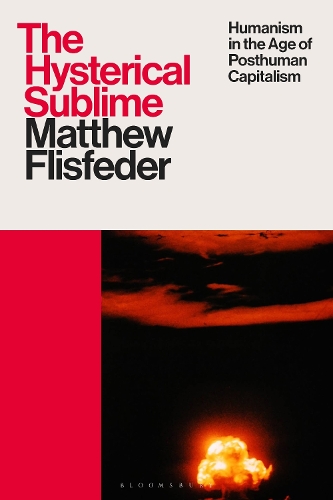
The Hysterical Sublime: Humanism in the Age of Posthuman Capitalism
(Hardback)
Publishing Details
The Hysterical Sublime: Humanism in the Age of Posthuman Capitalism
By (Author) Matthew Flisfeder
Bloomsbury Publishing PLC
Bloomsbury Academic
24th July 2025
United Kingdom
Classifications
Professional and Scholarly
Non Fiction
Humanist philosophy
Social and political philosophy
144
Physical Properties
Hardback
264
Width 162mm, Height 236mm, Spine 22mm
540g
Description
Developing the concept of the hysterical sublime, first theorised by Fredric Jameson, to challenge posthumanist perspectives on the Anthropocene, this book facilitates the rethinking of universal and dialectical humanism as concepts for grappling with 21st-century capitalism.
In recent years, posthumanist theories have been concerned with the overlapping dilemmas of global climate change, digital automation, and artificial intelligence, corresponding to the age of the Anthropocene. Matthew Flisfeder explores how the fear of technology becomes, for Jameson, a substitute for the fears of the capitalist system, and shows that posthumanism displaces such fears onto the figure of the human and anthropocentrism. Drawing on Hegelian-Lacanian theory, the book argues that to rethink dialectical humanism requires moving past the historicist versions of Marxist humanism that imagine a complete reconciliation with non-human nature that includes a process of dis-alienation. Flisfeder also studies posthumanisms performative contradiction of dismissing humanism while at the same time depending on the very concepts that constitute the core of humanist thought: freedom, equality, responsibility, and autonomy.
Through the concept of the hysterical sublime, this book argues that, not only is anthropocentrism and humanism the unconscious core of posthumanist theory; emancipatory politics must take ownership of this perspective and renew universalist and dialectical humanism as the core of the political project resistant to capitalism and the Capitalocene.
Author Bio
Matthew Flisfeder is an Assistant Professor in the Department of Rhetoric, Writing, and Communications at the University of Winnipeg. He is the author of The Symbolic, The Sublime, and Slavoj ieks Theory of Film (2012) and co-editor of iek and Media Studies: A Reader (2014).
